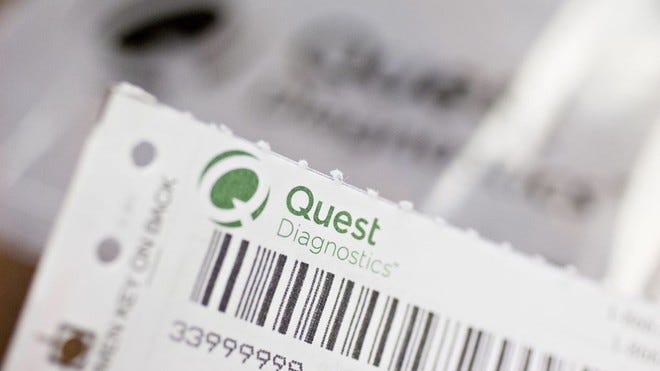Good morning. Today, we’re discussing the latest early data and testing methods for the coronavirus.
If you like what you read, make sure to drag the email to your “primary” tab!
Two more COVID vaccines read out solid early-stage data
The pulse:
Welcome to the club, AstraZeneca and CanSino: the two pharmaceutical companies became the third and fourth groups to read out positive early-stage data for their coronavirus vaccine candidates on Monday.
How’d the data turn out?
Broadly, good enough to justify larger-scale research, but not good enough to make any definitive conclusions on whether they’ll work or not.
AstraZeneca’s vaccine, which has been developed in collaboration with Oxford University, induced neutralizing, COVID-protective antibodies in patients. About 60% of patients had side effects, but they were all deemed to be mild or moderate (largely fever, headaches, muscle aches).
The CanSino vaccine also induced neutralizing antibodies safely, but didn’t work as well in older patients (ages 55+), leading some to speculate that it might not be best fit for a virus that takes a heavy toll on the elderly.
The AstraZeneca vaccine has already kicked off Phase 3 testing in thousands of patients. CanSino will do the same in the near-term, as will Pfizer and Moderna, who both released positive data for their vaccines earlier this month.
There are a lot of vaccines to keep track of.
There are 23 COVID-19 vaccines in development right now. The benefit of having so many is that we get to understand how different mechanisms work against the virus. Pfizer and Moderna, for example, both use small pieces of RNA to prime the body against the coronavirus. CanSIno, on the other hand, uses a weakened human cold virus called Ad5 to teach the immune system to recognize the coronavirus.
It’s estimated that vaccines that complete Phase 1 (which AstraZeneca and CanSino just did) have a 60% chance of failing before reaching the market. That’s a lot of risk, and distributing it amongst various manufacturers and mechanisms is necessary to maximize our chances of having something to prevent the coronavirus.
Bottom line it for me.
More early, promising vaccine data sets the stage for trials in tens of thousands of patients, which are expected to release data late this year.

Source: MarketWatch.
Need for speed
The pulse:
Last Saturday, the FDA approved an emergency use authorization for a Quest Diagnostics COVID-19 test that uses pooled sampling to speed up testing.
What’s pooled sampling?
Pooled sampling involves combining samples from multiple patients and running a test on them as one large batch. If the test comes back negative, it clears everyone in the group. But if it comes back positive, the technique requires re-testing each sample individually to figure out who was positive.
The Quest test in particular allows swabs from up to four individuals to be combined.
This allows testing to occur on a large scale – more people can be tested at a time for lower cost. It’s recommended in areas that have low rates of infection (generally less than 10%) so that large groups can be screened as COVID negative and return to their normal lives.
This approach, of course, is unlikely to be used in hot spots, like nursing homes, or the state of Arizona.
What are the implications of using pooled testing?
Pooled testing has been around for a while, and has already been used during this pandemic by China, Germany, Israel, and Thailand.
In theory, it could help increase testing from 20 million per month to 100 million per month in September, according to Brett Giroir, one of the HHS’ chief testing leaders.
Select public health officials, however, view pooled testing as a tool for political gain:
“I don’t know how effective pooling will be, the push for pooling is really coming from the White House and [coronavirus coordinator Deborah] Birx and the group that she leads up primarily because it’s an easy way to build numbers...I think they just want to run the numbers up.”
Eric Blank, chief program officer for the Association of Public Health Laboratories.
Bottom line it for me:
Pooled sampling can increase testing speed, but only in areas where we already know there is limited viral spread.
Rapidfire
StatNews investigated President Trump’s claim that the rise in cases is caused by more testing. Spoiler alert: it isn’t.
Acadia Pharmaceuticals has reported disappointing results from an attempt to use its antipsychotic Nuplazid as a treatment for patients with major depressive disorder.
AstraZeneca will be receiving a fast tracked review for an expanded indication of its diabetes drug Farxiga in the treatment of heart failure.
If you like Morning Pulse, make sure to drag it to the “primary” tab in your email, and share it with friends below!


